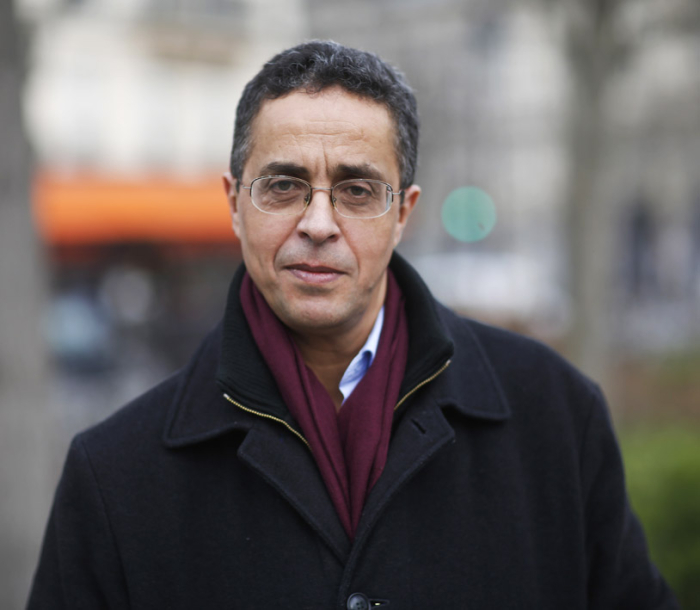
Anouar Benmalek, an esteemed novelist, journalist, mathematician, and poet, presented at Scripps on the topic “From the Shoah to the Herero Genocide: A Singular Journey from an Arab Writer” for the O’Brien Distinguished Visiting Professor Lecture. Benmalek holds dual Algerian and French citizenship and is a professor of mathematics at the University of Paris-Sud. He has won several of France’s prestigious literary prizes, and has been nominated for the Nobel Prize in Literature. His historical novels examine the lives of ordinary people living in violent times, that is, under conditions of genocide, political repression, racism, and religious fundamentalism.
Scripps College: Your latest novel, Fils du Shéol (son of Sheol) is, in part, about the Jewish Holocaust. How did you, an Arab writer, become the first Arab writer to write a novel about the Holocaust?
Anouar Benmalek: I affirm that a writer has the right to treat any subject; we all belong to the community of Homo sapiens, and any calamity affecting part of this community affects all of us—or should affect all of us.
SC: Your new novel also encompasses the genocide of the Herero people of Namibia. What is the connection with the Holocaust?
AB: When I was reading a biography of Nazi Party leader Hermann Göring, I learned that his father had been governor of Namibia (formerly German South West Africa), and I discovered the extent of the German massacres of the Herero and Nama people. My amazement was that I, and many people I knew, had never heard about what appears to be the first genocide of the twentieth century. How is it possible that an entire genocide was never part of our common memory?”
SC: What will be the “take away” message of your presentation?
AB: That in life, there is this battle between the terrifying determinism of certain historical moments and a small piece of freedom that every one of us possesses and can decide to use.

